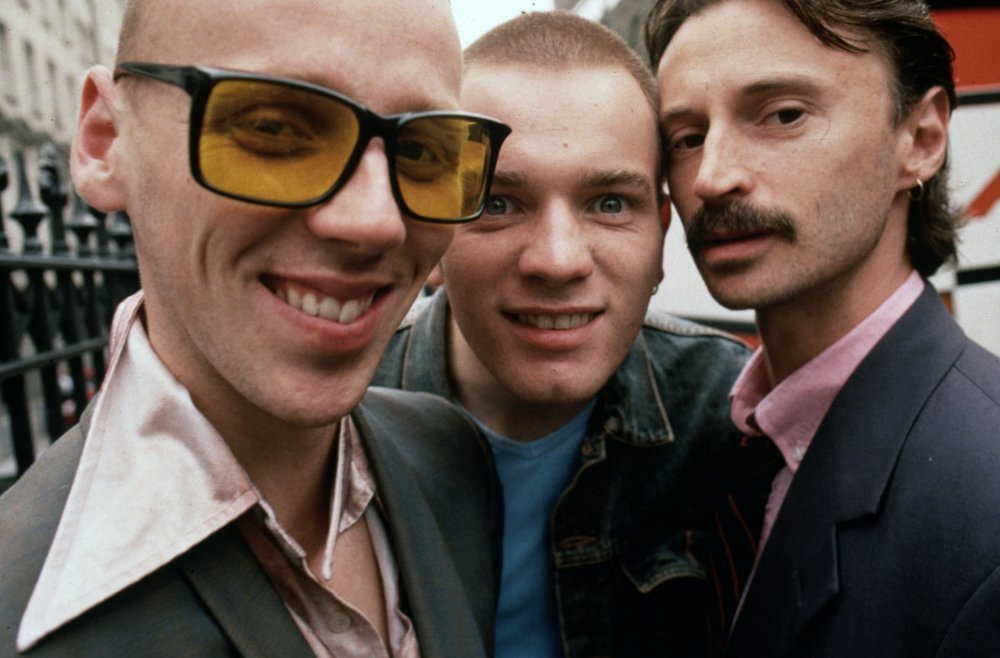Released in 1996, Trainspotting captured the imagination of the world. Iconic in its flow, narrative, and musical anchors, the original film charted the highs and lows and the comradery and betrayal of drug addiction amongst confused 20-somethings with uncertain futures. Twenty years later, we are just as excited to catch up with now ex-heroin addict Mark Renton (Ewan McGregor) and his former gang of Generation Xers in the film’s sequel, T2. As iconic as its posters and typography, was the original film’s soundtrack — which captured the rise of Britpop, rave culture, and the 80’s influencers of those scenes. How can you forget chanting to “Born Slippy” with your mates and following the antics of Pulp and Blur on TV?
So: will the new soundtrack capture the sound of a generation in such a relevant, contemporary snapshot as the first LP did? Thanks to the sprawling digital network that defines today — a world where culture and music from far flung regions are placed at our fingertips — it may not. The current sound of urban dystopia, courtesy of Scottish trio Young Fathers, offers a glimpse into the culture of the here and now — a now where the ‘alternative’ has basically become “normal.” The majority of us decided to choose life.
It’s not anyone’s fault, though — it’s just that times have changed rapidly. The mid-90s was an incubator for musical scenes at a time when musical reach was more limited. Trainspotting‘s soundtrack introduced masses worldwide to Britpop, rave, and new wave through a well-sequenced stone-tablet of influence. No wonder Boyle’s team released another soundtrack in 1997, Trainspotting #2, after reception for the first installment had been so great.
Below, we look at a handful of the pivotal artists featured across both albums and how their music didn’t just anchor the story of Renton and his gang of miscreants, but helped to define the film as one of the coolest in British cinematic history. It achieved this by introducing and reaffirming important musicians from the period, all of whom maintained their cultural relevance and creative output, some 20 years later.
Read: Sick Boy, Renton, Begbie, and Spud talk 90s nostalgia and defining a new generation.
Iggy Pop
The original Stooge makes not one, not two, but three appearances. First with one of his biggest hits, “Lust for Life” — track that encapsulates a raw, youthful, middle-finger-to-society attitude that summed up the mid nineties phenomenons of Britpop and rave culture. Secondly, Mr Pop re-emerges with “Nightclubbing,” a song soaked in irony and nonchalant attitude summing up Renton’s reluctance to be swept away by the tide of his friends. Later, Iggy’s “The Passenger” is used in T2.
Underworld
“Born Slippy,” with its uplifting breakdowns, bass heavy verses, pummeling drums, and repetitive vocal defined the dark edges of youth culture. Although the track is rumored to be about a winning greyhound at Walthamstow dog track, it became more famous for its summarization of Renton breaking free of the gang at the film’s climactic end. It’s an iconic track that’s multi-layered tones summed up Renton’s own personal battle with his demons.
Primal Scream
Primal Scream merged indie rock with danceable rave-aesthetics, a concoction of sneering, swaggering hedonism with a distinctly British edge. In an interview with Spin, frontman Bobby Gillespie tells how the band offered Danny Boyle a track that had been especially made for the soundtrack, as they felt that they “were the fucking junkie band” over Britpop luminaries Blur and Pulp. The song was later included in the band’s 1997 album Vanishing Point, while their widely recognized hit, “Come Together,” was featured on the soundtrack’s second installment.
Lou Reed
The Velvet Underground’s Lou Reed delivered a stone cold classic with “Perfect Day,” one of the singer-songwriter’s more touching and heartfelt moments. Taken out of context and placed at the point of the film when Renton suffers a near fatal overdose, the track became bittersweet and poignant, accompanying one of the film’s most memorable and bold scenes.
Pulp
Although Pulp’s inclusion wasn’t as synonymous with the film as Lou or Underworld, “Mile End” — originally a B-side lifted from “Something’s Changed” — talked about the hardships of living on the skint edge, offering a powerful, voyeuristic narrative that summed up the plight of the film’s protagonists perfectly.
Sleeper
Britpop band Sleeper gave Blondie’s immortal, sassy hit “Atomic” a makeover, paying homage to Debbie Harry’s vocals and injecting a layer of punk-funk groove to the mix.
Brian Eno
The “back room boffin’s” ambient “Deep Blue Day” has now become synonymous with the soundtrack. Its dulcet and soothing tones capture the surrealist moment when Renton dives headfirst into “the worst toilet in Scotland” to retrieve his opiate suppositories.
Credits
Text Joe Gamp
